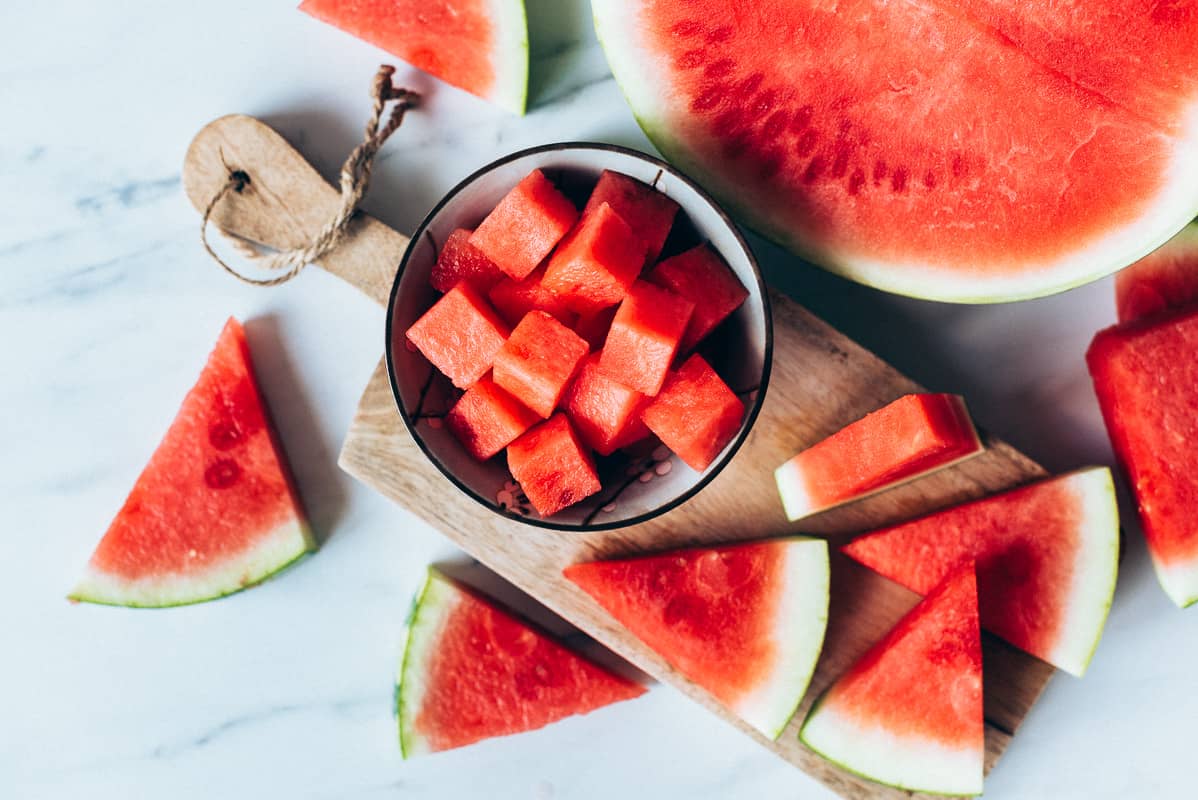
Is Dehydration Affecting Your Gut Health? Find Out Now!

Posted on August 22, 2024.
We often underestimate the importance of staying hydrated in our daily lives. We may think of hydration as simply quenching our thirst, but it goes beyond that. Think about how every cell, tissue, and organ in your body relies on proper hydration to function optimally. This is especially true for your digestive system, which plays a crucial role in your overall health.
But what happens when we don't drink enough water? Dehydration can have a significant impact on our bodies, and it's not just about feeling thirsty. It can affect our performance, mood, and even our gut health.
That's why in this article, we will explore the connection between dehydration and gut health and discuss why it's essential to pay attention to our daily water intake.
Understanding Gut Health and Why It Matters
Understanding gut health begins with recognizing the crucial role our gastrointestinal system plays in our overall well-being. Gut health refers to the balance and functioning of the bacteria and other microorganisms living in our digestive tract, collectively known as the gut microbiome. This microbial community includes beneficial bacteria that help in digesting food, absorbing nutrients, and maintaining a proper immune response.
A well-balanced gut microbiome supports various bodily functions, ensuring that your system operates smoothly and efficiently. Imbalances in these microorganisms, often caused by poor diet, stress, or dehydration, can lead to digestive problems, weakened immunity, and multiple chronic conditions.
The gut serves as a biological powerhouse for processing the food and beverages we consume. It breaks down nutrients and converts them into energy and building blocks for repair and growth. Enzymes and stomach acids assist in digestion, ensuring that carbohydrates, proteins, and fats are efficiently processed. As food passes through the small intestine, beneficial gut bacteria play a critical role in breaking down complex molecules and facilitating nutrient absorption. Consequently, when gut health is compromised, you may experience inadequate nutrient absorption, leading to deficiencies that impact your overall wellness.
Moreover, the gut has extensive connections with other vital systems in the body, notably the immune system. Around 70% of your immune cells reside in the gut, suggesting that a healthy gut is fundamental to immunity. Beneficial bacteria help to prevent the invasion of harmful pathogens, serve as gatekeepers for inflammatory responses, and produce antimicrobial substances that fend off infections. Maintaining optimal gut health can significantly impact your resilience to illnesses, reduce inflammation, and even contribute to reducing the risk of autoimmune diseases. So, keeping your gut in good shape boosts your defense against health threats.
It’s also fascinating to discover that the gut communicates directly with the brain through the gut-brain axis. This relationship explains how gut health affects mood, mental health, and cognitive functions. The gut produces neurotransmitters such as serotonin, often dubbed the “feel-good” hormone, which regulates mood, sleep, and even social behavior. A disrupted gut microbiome can lead to increased levels of stress and anxiety, affecting your mental clarity and emotional well-being. Therefore, nurturing your gut can be instrumental in achieving mental harmony and emotional stability.
The Critical Role of Hydration in Digestion

Understanding the intricate relationship between hydration and digestion can revolutionize how we perceive health. Picture this: when you are adequately hydrated, water lubricates your digestive system, making the process of breaking down food more efficient. Worth noting is that enzymes involved in breaking down carbohydrates, proteins, and fats rely on water to function optimally. Simply put, without enough water, the intricate biochemistry of digestion falters, leading to incomplete breakdown and improper absorption of nutrients. For instance, if you frequently experience discomfort or sluggishness after meals, chronic dehydration might be at play, impairing your body's capability to digest food properly.
Next, consider how hydration aids in the movement of food through the digestive tract. Water is essential in forming a gel-like substance with dietary fiber in your intestines, which helps transport waste materials smoothly and prevents constipation. It’s not just about avoiding discomfort; regular bowel movements are crucial for expelling toxins and maintaining gut cleanliness. When you are dehydrated, your body attempts to retain water by extracting it from your stools, resulting in hard, difficult-to-pass bowel movements. Constipation is a prevalent issue linked to inadequate hydration, causing both physical discomfort and potential complications if persistently unaddressed.
Furthermore, staying hydrated helps combat common digestive issues like bloating. When dehydrated, your body retains more water to compensate, leading to that dreaded bloat. On the flip side, consistent hydration helps to regulate your body's fluid balance, reducing water retention and promoting a flatter, more comfortable stomach. In addition, adequate water intake supports the function of mucus in the stomach lining, protecting against acid and necessary for the smooth transit of contents through your digestive system. This balance contributes significantly to your overall comfort and wellness.
Common Gut Problems Linked to Dehydration

One of the common gut problems linked to dehydration is the exacerbation of gastrointestinal disorders. Conditions such as Irritable Bowel Syndrome (IBS) and Gastroesophageal Reflux Disease (GERD) can become more pronounced when your body lacks adequate water. Dehydration leads to a thicker consistency of digestive juices, making the movement of food through the gut more sluggish. This sluggishness can increase the chances of constipation, which is a common trigger for IBS flare-ups. Constipation not only leads to discomfort and bloating but can also put pressure on the stomach, aggravating GERD symptoms. Moreover, the lack of hydration can cause the stomach lining to become more susceptible to acid, inflaming the issue. Ensuring proper hydration can help in managing these disorders more effectively by facilitating bowel regularity and reducing the frequency and intensity of reflux.
In addition to gastrointestinal disorders, consider how gut problems stemming from antibiotics are impacted by dehydration. Antibiotics, while crucial for treating bacterial infections, can disrupt the delicate balance of your gut microbiome. They eliminate both harmful and beneficial bacteria, often leading to an overgrowth of yeast and opportunistic pathogens like Clostridium difficile. When the body is dehydrated, this imbalance can worsen, as beneficial bacteria struggle to re-establish themselves in a less optimal environment. Dehydration hampers the intake of probiotics and nutrients that beneficial bacteria need to flourish, prolonging the recovery period of your gut microbiome. By maintaining good hydration levels, you support the restoration of a balanced gut flora, counteracting the adverse effects of antibiotics more efficiently.
Another distressing issue is how gut problems cause bad breath. This might seem surprising, but there’s a direct connection between your gut health and oral hygiene. A dry mouth resulting from dehydration fails to wash away food particles and bacteria effectively, leading to plaque buildup and bad breath. Furthermore, constipation and poor digestion caused by dehydration can lead to the fermentation of undigested food in the intestines. This fermentation process releases gases that create foul smells, which can then travel up the digestive tract and manifest as bad breath. Therefore, sipping water throughout the day not only maintains oral health by keeping saliva production in check but also reduces gut-related causes of bad breath, making those crucial face-to-face interactions more pleasant.
Delving deeper, dehydration can make you prone to inflammatory reactions within the gut. A well-hydrated system helps maintain the mucosal lining of your intestines, essential for shielding your gut from harmful substances and pathogens. When you’re dehydrated, this barrier is compromised, making it easier for toxins and pathogens to cause inflammation and even enter your bloodstream. Chronic low-grade inflammation in the gut can lead to various of long-term health issues, including autoimmune disorders. Thus, drinking enough water becomes a frontline defense against inflammation, ensuring that your gut remains a robust barrier against external threats and maintains its integral role in your overall immunity.
Effective Hydration Strategies for Optimal Gut Health

Now, let's delve into effective hydration strategies for optimal gut health.
1. Daily Water Needs
First and foremost, understanding your daily water needs is essential. On average, women should aim for about 2.7 liters (91 ounces) of total water per day, while men should target 3.7 liters (125 ounces). This includes all beverages and water-rich foods like fruits and vegetables. Keeping a refillable water bottle handy can make it easier to remember to drink water frequently. Consider setting reminders on your phone to take sips throughout the day, especially if you find yourself getting caught up in work or other activities.
2. Boosting Your Diet
Alongside drinking water, incorporating water-rich foods into your diet can significantly boost your hydration levels. Foods like cucumbers, tomatoes, watermelons, and strawberries are excellent choices. Not only do they contribute to your hydration needs, but they are also packed with essential vitamins and minerals that support gut health. For instance, cucumbers are a great source of hydration and contain anti-inflammatory properties that soothe the gut lining. Watermelons are not only refreshing but also provide a healthy dose of vitamin C and antioxidants that benefit your digestive system. By consciously including these foods in your daily meals, you are aiding your hydration efforts and nurturing your body with valuable nutrients.
3. About Coffee and Alcohol
Avoiding excessive caffeine and alcohol is another crucial strategy for maintaining hydration and supporting gut health. Both caffeine and alcohol are diuretics, meaning they increase urine production and can lead to dehydration if consumed in large quantities. If you're a coffee lover or enjoy an occasional drink, try to balance it out with additional water intake. Make it a habit to drink a glass of water for every cup of coffee or alcoholic beverage you consume. This practice helps offset the dehydrating effects and keeps your hydration levels in check. Remember, moderation is key to maintaining a healthy balance and ensuring that your body receives adequate hydration without compromising your gut health.
Related - Transform Your Body: Combining Medical Weight Loss with Lipo Dissolve
Final Words
Drinking enough water is crucial for maintaining good gut health. Dehydration can have a negative impact on your digestive system, leading to issues like constipation and bloating. These symptoms can not only be uncomfortable, but can also interrupt the way your body digests food and affect overall gut health.
In fact, dehydration can have long-term effects on digestion and gut health if not properly addressed. It can lead to chronic constipation, which can cause inflammation and damage to the lining of the digestive tract. This can also increase the risk of developing more serious gastrointestinal issues. For example, studies have shown that dehydration can lead to a 20% decrease in digestive function. Additionally, it is estimated that 1 in 3 people suffer from chronic constipation due to dehydration.
One way to ensure optimal hydration is by using services like IV Hydration, which can increase the absorption of essential vitamins and nutrients in your body. This can be especially beneficial for athletes, elderly individuals, and those with certain medical conditions who may struggle with dehydration or have difficulty absorbing nutrients through traditional means.
In addition to boosting hydration, these services have been shown to improve overall gut health by promoting better digestion and reducing the risk of gastrointestinal issues. This is because IV Hydration delivers fluids and nutrients directly into the bloodstream, bypassing the digestive system which may not always absorb all the necessary nutrients.
At LIV Wellness and Hydration, we are dedicated to helping you achieve and maintain optimal gut health. Our IV Hydration services not only provide essential hydration and nutrients, but also aid in improving digestion and reducing the risk of gastrointestinal issues. Let us help you on your journey to a healthier gut and overall well-being. Replenish and revitalize your body with IV Hydration by booking your session today and experience the benefits of instant hydration and nutrient delivery directly into your bloodstream.
Don't wait to start your journey toward optimal wellness. Connect with us today at (610) 334-1062 to learn more about how you can integrate these services and create a sustainable path to health and vitality. Let us support you in making informed choices that nourish your body and mind in every possible way.
Send Us a Message
Please feel free to reach out to us using the form below. We're here to answer any questions you may have about our services, schedule appointments, or assist you in any way possible. Your inquiry is important to us, and we'll get back to you promptly.
